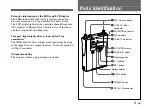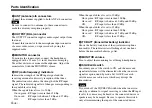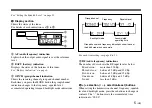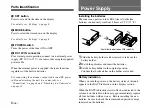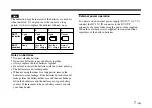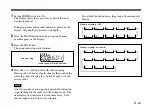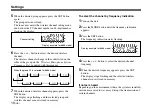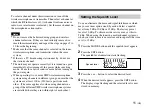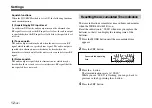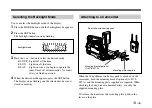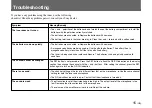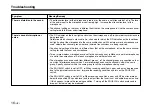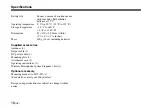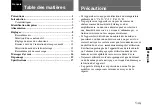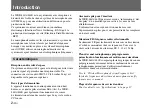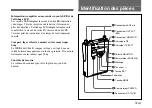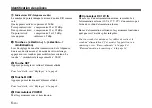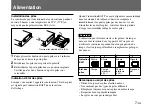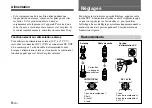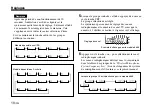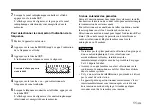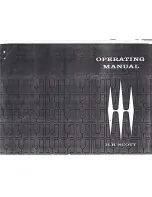
17
(US)
Specifications
Tuner section
Type of reception
Space diversity
Circuit system
Dual conversion superheterodyne
Receiving frequencies
Model available in the U.S.A. :
one frequency within 758 to 782
MHz (6264 model)
one frequency within 782 to 806
MHz (6668 model)
one frequency within 566 to 590
MHz (3032 model)
one frequency within 638 to 662
MHz (4244 model)
Model available in Australia:
one frequency within 792 to 806
MHz
Local oscillators
1st: Crystal controlled PLL
synthesizer
2nd: Crystal oscillator
Antenna connectors
BNC-R (2)
RF input impedance
50
Ω
RF squelch level
5 dBµ /10 dBµ /15 dBµ or OFF
selectable
Frequency response
40 Hz to 18 kHz
De-emphasis
50 µs
Selectivity
60 dB or more
(at ±250 kHz detuned)
Spurious rejection ratio 70 dB or more
Image rejection ratio
60 dB or more
Signal-to-noise ratio
30 dB or more at 10 dBµ RF input
60 dB or more at 60 dBµ RF input
(±5 kHz deviation at 1 kHz
modulation, A-weighted)
Distortion
1% or less
(±40 kHz deviation at 1 kHz
modulation)
Tone squelch frequency 32.768 kHz
Output connectors
SMC9-4S (1)
Output level
–58 dBm
(±5 kHz deviation at 1 kHz
modulation)
Output impedance
150
Ω
, balanced
Monitor connector
3.5 mm (
5
/
32
inch) dia. stereo mini
jack
General
Power requirements
Batteries: 6 V DC , four alkaline
batteries LR6 (size AA)
External: 12V DC
Current consumption
Batteries: Approx. 140 mA at 6V
DC
External: Approx. 85 mA at 12 V
DC
.............................................................................................................................................................................................................................................................
0 dBµ = 1 µV
EMF
/ 0 dBm = 0.775 Vrms (600
Ω
loaded)

